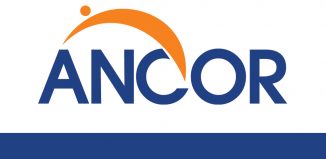SAMSHA and Federal Funding Opportunities Focus on Opioid, Community Behavioral Health
Nearly $25M Available to Substance Use Prevention Coalitions in New Partnership Between ONDCP and CDC: White House Office of National Drug Control Policy (ONDCP) Director Jim Carroll announced the Fiscal Year (FY) 2020 Drug-Free Communities (DFC) Support Program’s Notice of Funding Opportunity Announcement (FOA), which begins this year’s process of awarding funds to community coalitions focused on preventing youth substance use. For FY 2020, this will allow 200 new communities to receive direct financial help totaling $25 million from the White House to prevent illicit drug use and save lives. Community coalitions interested in applying to the DFC Program can learn more here.
ARC Announces $3.3 Million to Continue Economic Growth in Region’s Coal-Impacted Communities: On February 12, ARC announced nearly $3.3 million in investments through the POWER (Partnerships for Opportunity and Workforce and Economic Revitalization) Initiative focusing on strengthening responses to substance abuse, improving broadband infrastructure, and supporting Opportunity Zone investments.
March deadline:
- DOJ-BJA Stop School Violence Grant Program. DOJ is seeking applications for funding under the Student, Teachers, and Officers Preventing (STOP) School Violence Grant Program. This program furthers the Department’s mission by supporting and assisting county, local, territorial, and tribal jurisdictions in improving efforts to reduce violent crime in and around schools. Deadline: March 3, 2020. Review application guidelines here.
- HHS-SAMHSA: Certified Community Behavioral Health Clinic Expansion Grants SAMHSA is accepting applications for Certified Community Behavioral Health Clinics Expansion Grants (CCBHC Expansion Grants). The purpose of this program is to increase access to, and improve the quality of community mental and substance use disorder (SUD) treatment services through the expansion of CCBHCs. SAMHSA expects that this program will provide comprehensive 24/7 access to community-based mental and SUD services; treatment of co-occurring disorders; and physical health care in one single location. Deadline: Tuesday, March 10, 2020.
- HHS-SAMHSA: Minority Fellowship Program SAMHSA is accepting applications for a Minority Fellowship Program (MFP) grant. The purpose of this program is to increase the knowledge of mental health professionals on issues related to prevention, treatment, and recovery support. The program aims to reach individuals who are from racial and ethnic minority populations and have a mental or co-occurring mental and substance use disorder, and to improve the quality of care provided to these individuals. Deadline: March 16, 2020.
- HHS-SAMHSA: Comprehensive Opioid Recovery Centers SAMHSA is accepting applications for Comprehensive Opioid Recovery Centers (CORC) grants. The purpose of the program is the operation of comprehensive centers which provide a full spectrum of treatment and recovery support services to address the opioid epidemic. Deadline: March 17, 2020.
- HHS-SAMHSA: Grants to Implement the National Strategy for Suicide Prevention SAMHSA is accepting applications for Grants to Implement the National Strategy for Suicide Prevention (NSSP). The purpose of this program is to support states and communities in advancing efforts to prevent suicide and suicide attempts among adults age 25 and older in order to reduce the overall suicide rate and number of suicides in the US nationally. Addressing suicide prevention among adults is imperative to decreasing the nation’s suicide rate. Deadline: March 23, 2020.
- HHS-SAMHSA: Services Grant Program for Residential Treatment for Pregnant and Postpartum Women. SAMHSA is accepting applications for the Residential Treatment for Pregnant and Postpartum Women grant program (PPW). The purpose of this program is to provide pregnant and postpartum women with treatment for substance use disorders through programs in which, during the course of receiving treatment, 1) the women reside in or receive outpatient treatment services from facilities provided by the programs; 2) the minor children of the women reside with the women in such facilities, if the women so request; and 3) the services are available to or on behalf of the women. Deadline: March 30, 2020.
April deadline:
- DOJ-BJA Residential Substance Abuse Treatment (RSAT) for State Prisoners Program. The RSAT for State Prisoners Program assists states with developing and implementing residential substance abuse treatment programs within state correctional facilities, as well as within local correctional and detention facilities, in which inmates are incarcerated for a period of time sufficient to permit substance abuse treatment. The program encourages the establishment and maintenance of drug-free prisons and jails and developing and implementing specialized residential substance abuse treatment programs that identify and provide appropriate treatment to inmates with co-occurring mental health and substance abuse disorders or challenges. Deadline: April 6, 2020.
- HHS-HRSA: Rural Communities Opioid Response Program-Implementation. The Rural Communities Opioid Response Program (RCORP) is a multi-year initiative by the Health Resources and Services Administration (HRSA) aimed at reducing the morbidity and mortality of substance use disorder (SUD), including opioid use disorder (OUD), in high risk rural communities. This notice announces the opportunity to apply for funding under RCORP-Implementation. Deadline: April 24, 2020.











